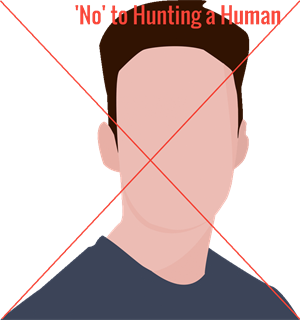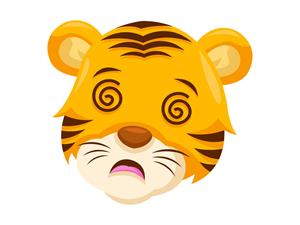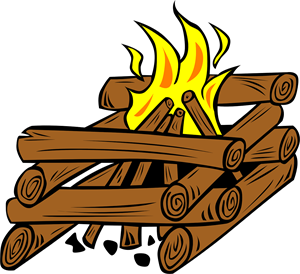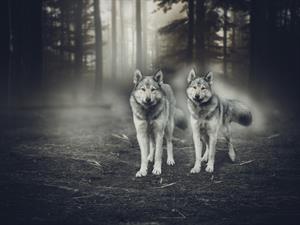PDF chapter test TRY NOW
Scene 3
Narrator: The law of the Jungle, which never orders anything without a reason, forbids every beast to eat Man except when he is killing to show his children how to kill, and then he must hunt outside the hunting grounds of his pack or tribe. The real reason for this is that Man-killing means, sooner or later, the arrival of men on elephants with guns and rockets and torches. Then everybody in the jungle suffers. The reason the beasts give among themselves is that Man is the weakest and most defenceless of all living things, and it is true – that Man-eaters become mangy and lose their teeth. The purr grew louder, and ended in the full-throated howl.
Shere Khan: Aaarrh!
Narrator: Then there was a howl – an untigerish howl – from Shere Khan.
Mother Wolf: He has missed.
Father Wolf: What is it? [Runs out a few paces and hears Shere Khan muttering and mumbling as he tumbles about in the scrub.] The fool has had no more sense than to jump at a woodcutter’s campfire, and has burned his feet. [With a grunt]. Tabaqui is with him.
Mother Wolf: Something is coming uphill. [Twitching one ear] Get ready!
Explanation:
The narrator explains why hunting a human was not accepted in the jungle. According to the Law of the Jungle, animals were forbidden to hunt and eat human except when the animal was killing the human to teach his children how to kill. Still, the animals were bound to hunt outside the grounds.

The Law of Jungle prevents animals from hunting a human
So why do you think the law prevented animals from hunting a human?
The law prohibits the killing of humans because the act would lead more humans to come to the jungle. Humans would arrive on elephants and attack the forest with guns, fire-torches, and rockets to keep themselves safe. In the end, all the animals in the jungle would suffer.

Villagers would arrive with guns, swords, and fire
Human beings are, by far, the greatest enemy of wild and exotic animals. They are also the most significant danger an animal could face. Several animals have gone extinct because of the selfish motives of human beings.
But, as the narrator says, the animals do not consider humans as superior. They also leave the humans aside as they believe the latter to be the weakest of all living things. They are also the most defenceless; as a result, they are not much of a game. Since it is effortless to hunt and kill a human, the 'man-eaters' (the animals who eat humans) become unhealthy, and they lose their teeth and become useless.

Man-eaters become sick and lose their teeth
Later, the narrator revealed that the tiger's purr grew louder and ended with a loud roar. Soon after the loud ferocious roar, Shere Khan had let out a groan that was untigerish. The cry implied that he wasn't happy.
Mother Wolf assumed that Sher Khan must have missed the human. Father Wolf wondered what caused the disappointed cry and looked down to inspect. He heard Shere Khan muttering and mumbling. The wolf realised that the tiger had accidentally jumped into the woodcutter's campfire and had burned his leg in the process. He also noticed that Tabaqui was with him.
Mother Wolf assumed that Sher Khan must have missed the human. Father Wolf wondered what caused the disappointed cry and looked down to inspect. He heard Shere Khan muttering and mumbling. The wolf realised that the tiger had accidentally jumped into the woodcutter's campfire and had burned his leg in the process. He also noticed that Tabaqui was with him.

Shere Khan jumped into the woodcutter's campfire
Soon after that, Mother Wolf called out to her husband and informed him that something was coming up the hill. They became alert believing that it was something terrible.

The wolves sensed something coming up the hill and became alert
Meanings of difficult words:
S.No | Words | Meanings |
1 | Forbid | Refuse to allow something |
2 | Beast | An animal, especially a large or wild one |
3 | Hunting grounds | A place where animals hunt for their food |
4 | Pack | A group of animals, such as dogs and wolves, that live and/or hunt together |
5 | Tribe | A group of people (or animals), often of related families, who live in the same area and share the same language, culture, and/or history |
6 | Rockets | A weapon that is capable of moving fast and can be aimed from a distance |
7 | Torch | A long stick with burning material at one end, used to provide light or to set things on fire |
8 | Defenceless | Weak and unable to defend themselves properly |
9 | Mangy | Dirty, sick, and uncared for |
10 | Full-throated | In a loud voice; at the top of one's voice |
11 | Howl | A long and loud sound made by animals |
12 | Pace | The speed at which something happens or is done |
13 | Muttering | To speak very quietly so that one cannot easily be heard, often because they are complaining about something |
14 | Mumbling | To speak in a quiet and unclear way |
15 | Tumbles | To fall with a rolling or bouncing movement |
16 | Scrub | Land covered with shrubby or small plants |
17 | Campfire | An outside fire, made and used by people who are staying outside or in tents |
18 | Grunt | To make a short, low sound instead of speaking, usually because of anger or pain |
19 | Twitching | A sudden small, usually unintentional, movement of a part of the body |
Reference:
State Council of Educational Research and Training (2019). Term-3 English Standard-6. The Jungle Book. (pp 116 - 121). Published by the Tamil Nadu Textbook and Educational Services Corporation.
